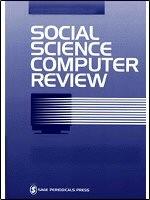Citation:

Date Published:
FALAbstract:
This study uses the Agent-Based Identity Repertoire model to investigate the ability of populations to adapt and learn in an unpredictable environment. The authors' findings highlight the trade-off between adaptation and diversity in the pursuit of performance but also show that this trade-off is far from straightforward Increasing sophistication improves the ability to adapt but reduces diversity, imposing high costs down the line. However, high levels of sophistication also produce small, stable homogeneous clusters of agents, which slow down declines in diversity. Innovative or entrepreneurial agents reacting more rapidly to environmental signals increase the prevalence of such clusters, helping diversity but hampering adaptability. The authors also show that more predictable environments facilitate successful adaptation, especially for populations of intermediate sophistication. Finally, the authors conclude that the trade-off between adaptation and diversity is such that in the present model, long-term learning is difficult to achieve.
